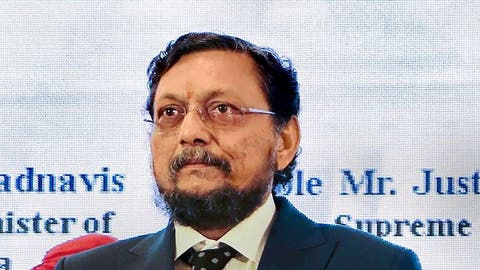The Supreme Court on Friday chastised the government for delaying the appointment of high court judges recommended by the CJI-led collegium.
New Delhi: The Supreme Court on Friday chastised the government for delaying the appointment of high court judges recommended by the CJI-led collegium.
The government had earlier returned around 100-odd suggested names with objections, however, the collegium reiterated those names.
According to the Times of India, questioning the delay, a bench comprising of Justices Sanjay Kishan Kaul and K.M. Joseph said that once the names were reiterated, it was a “fait accompli” for the government to make the appointments. The bench said three Supreme Court judgments make it clear that the Centre has no option but to appoint the judges if the collegium reiterates them.
Responding to the bench, attorney general K.K. Venugopal blamed the HC collegiums for not initiating the appointment process six months before vacancies arose. The court asked the AG to not make it a blame game and not make it an adversarial issue.
Asking the AG to impress upon the government to speed up the action on the collegium’s recommendations for the appointment of 100-odd HC judges, the bench said good candidates persuaded by the collegium to become judges were withdrawing their names because of the “sheer delay”.
As per the data available with the Department of Justice, there are 424 vacancies out of 1,079 sanctioned strength of high court judges as on November 1.
According to TOI, the bench, after spotting Kapil Sibal sitting in the courtroom, said he would “know better” about the vacancies in the high courts as he had been a law minister. Sibal replied, “I know a lot more but I am keeping quiet.”
TODAY IN HOME
Classic version

3′
CJI designate S.A. Bobde. Photo: PTI/FileLAW
Revenge is Not Justice Says CJI Bobde, Amid Cheers for Hyderabad Encounter
“I don’t think justice can ever be and ought to be instant,” he added, while acknowledging the debate around the time it takes to dispose of a criminal matter.

The Wire StaffGOVERNMENTLAWRIGHTS12 HOURS AGO
New Delhi: As politicians, movie stars and the public at large revel in the extra-judicial killing of four men suspected of involvement in the Hyderabad rape and murder case, it was left to India’s top judge to strike a note of sanity and remind everyone that justice cannot be ‘instant’ and is not served by “revenge”.
Speaking at an event in Jodhpur, Chief Justice S.A. Bobde said that recent events had sparked a debate about the time it takes to dispose of a criminal matter. “There is no doubt that the criminal justice system must reconsider its position, its attitudes towards time, towards laxity and towards the time it takes to dispose of a criminal matter,” he said.
He added:
“But I don’t think justice can ever be and ought to be instant. And justice must never ever take the form of revenge. I believe justice loses its character of justice if it becomes revenge.”
More in Home
Harsimrat Badal’s Support for Citizenship Bill Runs Contrary to the ‘Gujral Doctrine’
India’s Growing Impatience With Democracy
Watch | Why ‘Encounter’ Killing by Hyderabad Police is Nothing to Celebrate
COP25 Diary: Greta Thunberg Has Her Moment in Madrid
COP25 Diary: Why the License to Pollute Could Make or Break UN Climate Summit
The chief justice’s comments come even as politicians like Jaya Bachchan, who had earlier suggested the four accused should be lynched publicly, commenting that their death in the ‘encounter’ was “better late than never (“der aaye durust aaye“). Delhi Commission for Women chief Swati Maliwal has also said that the accused in the rape of a woman from Unnao should be “hanged within a month“.
In this context, Chief Justice Bobde’s words serve as a reminder that giving social and political sanction to encounter killings and abandoning due process would derail the criminal justice system.
The Supreme Court has already dealt with the issue of encounter killings, holding the right to life paramount. In a September 2014 judgment, apex court Justices R.M. Lodha and R.F. Nariman said that the right to life under Article 21 is available to every person and that even the state “has no authority to violate that right”.
Also Read: The Lawlessness of Encounter Killings
Even as the bench acknowledged the “difficult and delicate” task that the police are executed to perform, it highlighted why encounter killings should be investigated independently.
“Killings in police encounters require independent investigation. The killings in police encounters affect the credibility of the rule of law and the administration of the criminal justice system.”
“We are not oblivious of the fact that police in India has to perform a difficult and delicate task, particularly, when many hardcore criminals, like, extremists, terrorists, drug peddlers, smugglers who have organized gangs, have taken strong roots in the society but then such criminals must be dealt with by the police in an efficient and effective manner so as to bring them to justice by following rule of law.”
For the sake of accountability, the bench issued certain guidelines to ensure that an independent investigation is conducted into the encounter killings by police.
Classic version

